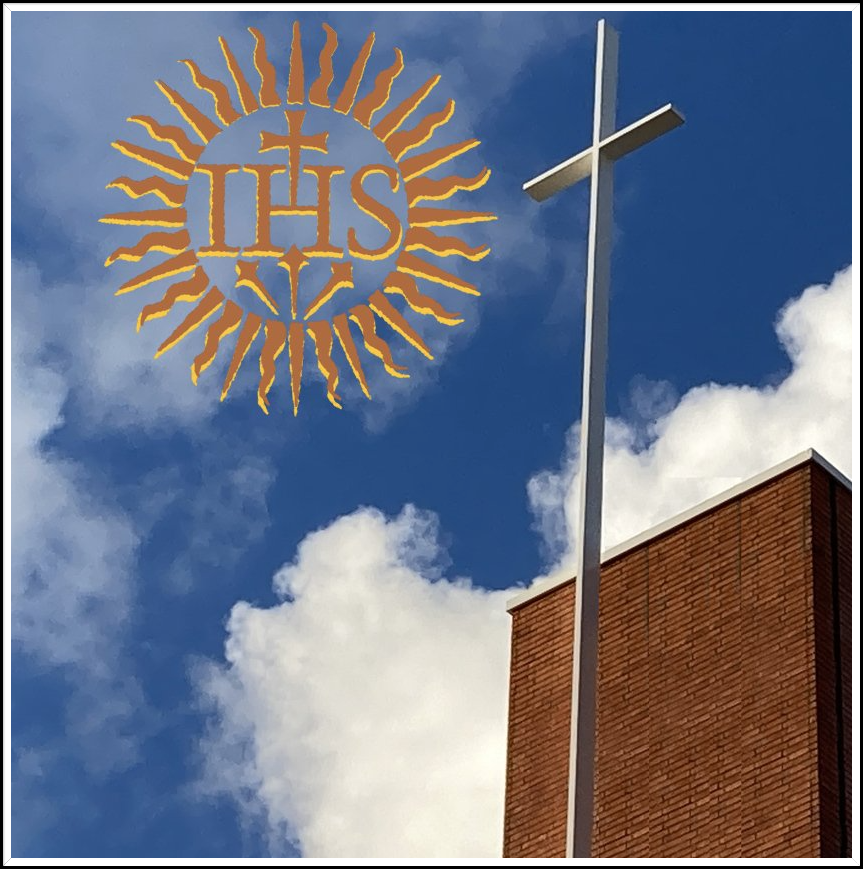Remembering Ignatius
August 3, 2025
This past Thursday we celebrated the feast of the patron of this church we love, St. Ignatius Loyola. We remember him, a good and holy and complex man who taught his early modern world, and who continues to teach us today. He taught about how to choose life in freedom; how to give glory to God through our lives; how to praise, revere, and serve God by coming to know ourselves, and by knowing, loving, and serving one another. I want to encourage myself, and you, to recognize the face of Christ in one another, in the work we do, in the many and growing ministries we share in this parish community.
I would be dishonest if I don’t acknowledge the ugly clouds of anxiety that hang over our valley landscape as we gathered for this celebration: clouds of war in the middle east, eastern Europe, Asia and Africa, clouds of misunderstanding and hatred that darken our borders and the streets of our cities, and the sad shadow of Fr. Art’s departure that still makes us shake our heads in confusion, in disbelief.
Yet, it is precisely here, at this hard, unfathomable intersection, under this cloud of confusion and doubt, that Ignatius, the wise and canny searcher of souls and of the ways of God, has much to teach us.
Listen to these words from the very beginning of his Spiritual Exercises, his guide for the soul that is seeking meaning, for those trying to fathom the inscrutable wisdom of God that seems so much like folly to us:
“Human beings are created to praise, reverence and serve God our Lord;” in modern words, to acknowledge, and to love the lord of life, to seek to serve.
Know, love, and serve. If we can understand what that means, if we can literally stand under that knowledge and love in service, then perhaps we can make sense of the challenge that we all these days, as we try to make meaning out of our mortal existence, as we try to name and number the gifts we have been given, not for our own enjoyment, but for the good of one another, for the salvation of the world we love so much.
Ignatius writes: “all things on the face of the earth are created for us, that we might attain this gift for which we are created;” that we may better know God, love more surely, and serve God and one another more faithfully.
So far, so good. We accept gifts as gift. Yet how does that comfort our own trials and doubts as we face diminishment and loss, the passing of those we love, even when they leave us unexpectedly or inexplicably; how do I face my own mortality?
Ignatius’ answer is terribly simple, yet anything but easy: accept that ALL is gift; gift we briefly hold in open hands, in open hearts. He tells us that that we cannot cling to these gifts; they are given to us to use, not to hoard away; they are given to us to savor for a moment, and then to give away freely as they have been given to us. Ignatius teaches us that to live authentically, we need to hold these gifts with indifference: not the fatal and fatalistic indifference of post-modern smugness, not with the cynical indifference of “whatever”, but the true and holy indifference that accepts whatever comes to us precisely as gift, as an opportunity for the growth of our own spirit and for the life of the world.
Ignatius teaches us a hard, deeply counter-cultural lesson: that “we should not want health rather than sickness, riches rather than poverty, honor rather than dishonor, that we need not want long life rather than short.”
In order to attain this impossible simplicity, Ignatius invites us to embrace the person of Jesus who emptied himself out, who suffered as we suffer, who became poor to share our poverty. Jesus became humble to share our humility and humiliation, as humble as bread and wine on our table; Jesus who embraced even our death that we might learn how to live through our own sufferings, even into and through our own death. That, Ignatius teaches us, is what it means to live the life we were created for, a gifted life that costs us nothing less than everything.
The most direct way we can embrace this unthinkable task is to do what Ignatius over and over again bids us to do in his exercises: to gaze with love at the awful beauty of the cross.
At the end of Mark Helprin’s long and troubling book called “A Soldier of the Great War” there is a discussion among the main characters about the meaning of sacrifice in the face of the insanity they had experienced during the first world war. This is what the protagonist says:
“Really everything they said seemed to be in contradiction to the truth of what I’d seen. And if you ask me what it was, I can’t tell you. I can only tell you it overwhelmed me, that all the hard and wonderful things of the world are nothing more than a frame for the spirit, like fire and light, that is the endless roiling of love and grace.
I can tell you only that beauty cannot be expressed or explained in a theory or an idea, that it moves by its own law, that it is God’s way of comforting his broken children…. “
May our God, beauty ever ancient, ever new, comfort us broken children, and reveal to us his beauty, his glory, shining on the face of Christ.
Blessings,

